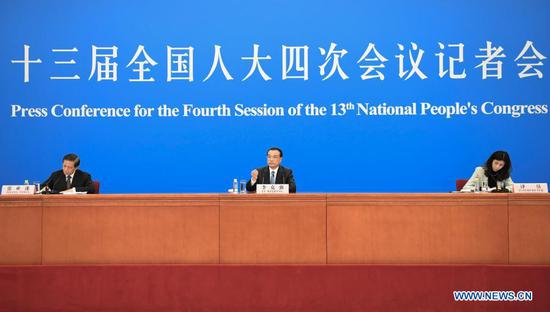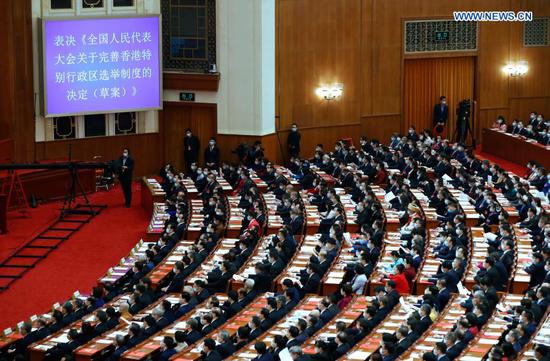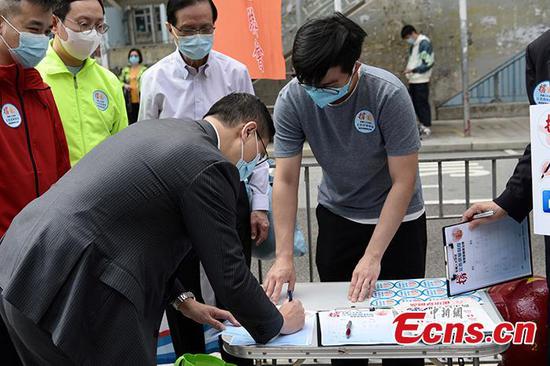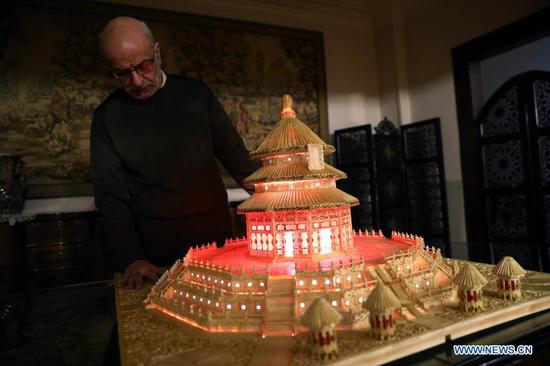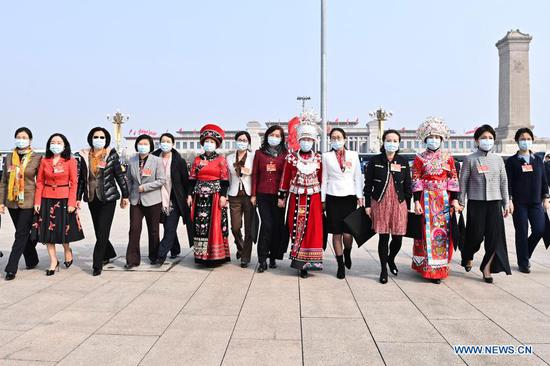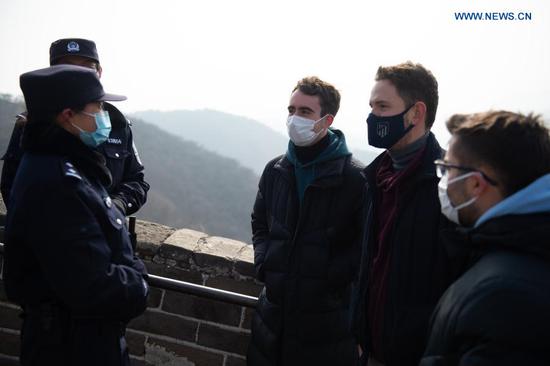Executive Deputy Director of the Hong Kong and Macao Affairs Office of the State Council Zhang Xiaoming on Friday highlighted the profound influence of the improvements in the electoral system of the Hong Kong Special Administrative Region (HKSAR), calling the move a "milestone" in implementing the principle of "One Country, Two Systems" and the Basic Law of the HKSAR.
Zhang made the remarks at a press conference held by China's State Council Information Office in Beijing. Deputy Director Deng Zhonghua of the Hong Kong and Macao Affairs Office of the State Council and Deputy Director Zhang Yong of the Legislative Affairs Commission of the Standing Committee of the National People's Congress (NPC) also attended the briefing.
The NPC, China's top legislature, on Thursday adopted a decision on improving the electoral system of the HKSAR after the draft was passed by an overwhelming majority vote at the fourth session of the 13th NPC.
Based on the decision, the HKSAR's Election Committee will be expanded from the current 1,200 members to 1,500, divided into five sectors. This will broaden the scope of political participation of Hong Kong compatriots and better integrate national interests with the overall interests of the Hong Kong society.
Profound influence in five areas
According to Zhang, the methods for the selection of the chief executive and the formation of the Legislative Council (LegCo) of the HKSAR, formulated 30 years ago, have visible flaws that need immediate rectification. He highlighted the profound influence of the decision in five points.
First, he viewed the improvement as a necessary measure to fix the loopholes in the existing electoral system and to uphold the principle of "One Country, Two Systems."
Rather than undermining the democracy in HKSAR, Zhang stated the decision was a concrete practice of "One Country, Two Systems."
Second, Zhang said the improvement also attaches great importance to safeguarding the order of the Hong Kong society and the maintenance of the city's long-term prosperity and stability.
Viewing the decision as an appropriate choice made based on the real situation in Hong Kong, Zhang stressed the improvement ensures the steady implementation of "One Country, Two Systems" in the long run.
In Zhang's words, the improvement is also the only route to enhance the HKSAR government's effectiveness in governance. It is beneficial to developing the city's economy and improving local residents' livelihoods and the well-being.
Last but not least, Zhang said that the decision provides a solid legal guarantee for fully implementing the principle of "patriots administering Hong Kong," which follows a principle that is indisputable for governance in any country in the world.
No changes on 'One Country, Two Systems' principle
Zhang dismissed concerns over whether the decisions may erode the principle of "One Country, Two Systems."
He reiterated that all the decisions are made to ensure improvement and full implementation of the principle.
The Communist Party of China (CPC) is the initiator, pioneer, implementer and defender of "One Country, Two Systems," said Zhang, underlining that no one has a more thorough understanding of the principle than the CPC.
Solid legal basis for the decision
Zhang Yong gave a detailed overview of the decision, which has a solid legal basis originating from China's Constitution.
He reaffirmed that the decision was made to improve the electoral system of the HKSAR and develop a democratic system suited to the its realities.
It is in accordance with China's Constitution, the HKSAR Basic Law and the Law on Safeguarding National Security in the HKSAR, the deputy director noted.
According to him, Hong Kong has been under China's overall governance system since its return in 1997. And China's Constitution and the Basic Law of the HKSAR jointly form the constitutional basis of the HKSAR.
Therefore, the NPC, as China's top legislature, has the solid legal force to approve decisions related to Hong Kong, said Zhang.














